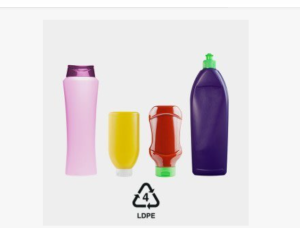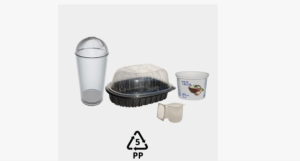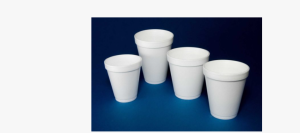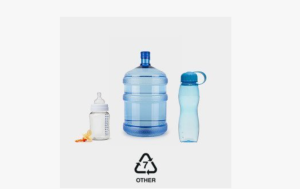
Low-density polyethylene LDPE is most commonly used in plastic wrap for frozen foods, bread bags and some food packaging. The heat resistance is not strong. Usually, plastic wrap will melt when the temperature exceeds 110°C, leaving some plastic preparations that cannot be decomposed by the human body.
·This material does not have strong heat resistance. When food is wrapped in plastic wrap and heated, the fat in the food will easily dissolve harmful substances in the plastic wrap. Therefore, before food is put into the microwave oven, the plastic wrap must be removed first.
·This material will produce toxic substances at high temperatures. When toxic substances enter the human body with food, they may cause breast cancer, birth defects in newborns and other diseases. Do not put plastic wrap in the microwave.
This plastic is recycled into compost bins, paneling, bin liners and cans, and floor tiles.

Usually this material is commonly used in microwave lunch boxes, ketchup bottles, microwave food containers, etc.
Please note that some microwave lunch boxes have a box body number of #5 plastic, but the lid is actually made of #6 PE plastic. Since PE plastic cannot withstand high temperatures, the lid cannot be put into the microwave oven together with the box.
·Avoid heating plastic. Place plastic containing food or drink in the dishwasher or other hot spots, such as your car. Warmer plastics break down more easily, melting and releasing chemicals.
·Waste polypropylene materials will eventually be recycled into brooms, car battery boxes, trash cans, trays, traffic lights, ice scrapers and bicycle racks.

Polystyrene is a common foam plastic used to make instant noodle bowl boxes and foam fast food boxes. It is notorious for being difficult to recycle and naturally degrade and harmful to the environment. This plastic also poses health risks, especially when heated, leaching potentially toxic chemicals. Most recycling programs will not accept it.
·This type of plastic cannot be placed in a microwave oven. It is best not to hold overheated food, such as hot water, instant noodles, etc., to avoid the release of chemicals due to excessive temperature. And it cannot be used to hold strong acids (such as orange juice) or strong alkaline substances, because it will decompose polystyrene that is not good for the human body.
Plastic #6 is commonly found in disposable lunch boxes, instant noodle boxes, disposable plastic cups, etc.
This type of material is recycled into egg cartons, foam packaging and insulation.

·All plastics that do not fit into other categories are included in Category 7. This is also a controversial material. Many plastic milk bottles and space cups in daily life are made of this material. It is a mixed plastic type that includes polycarbonate, which contains toxic bisphenol A (BPA). We should avoid using these plastics in our daily lives because they may contain hormone disruptors such as BPA, which has been closely linked to infertility, ADHD in children, reproductive problems, and other health issues.
·When purchasing plastic #7, please check the “BPA Free” label to ensure your health and safety.
·Even if #7 is marked as BPA-free material, please do not use it under high temperature conditions. Some common water cups on the market are made of #7 plastic, so try not to use them to hold hot water. The higher the temperature #7 type plastic is exposed to in a high temperature environment, the greater the probability and toxicity of its release of toxicity.
·Common supplies of this type include 3-gallon and 5-gallon water dispenser buckets, plastic water cups, sunglasses, mobile phone cases, computer cases, nylon, etc.
This type of material is recycled into plastic lumber and other custom products
Post time: 05-30-2024



